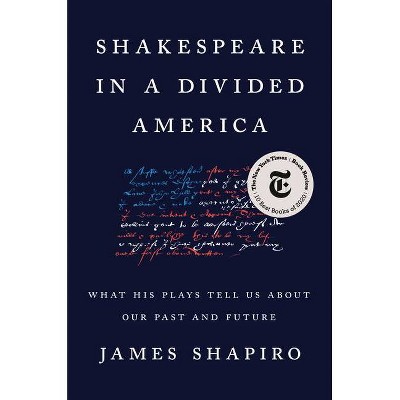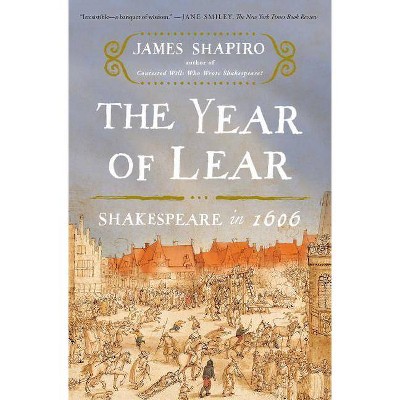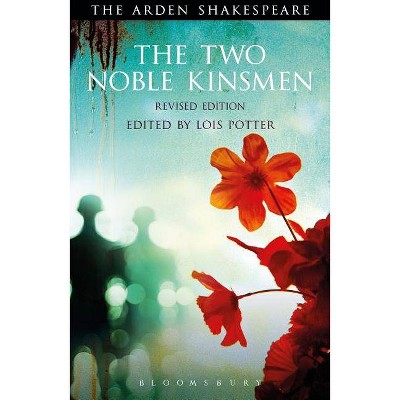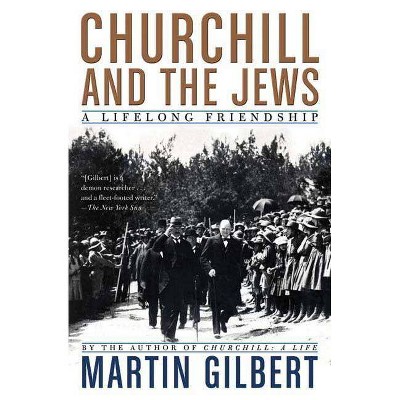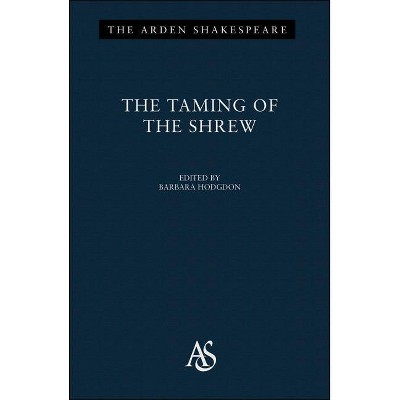Shakespeare and the Jews - 20th Edition by James Shapiro (Paperback)

Similar Products
Products of same category from the store
AllProduct info
<p/><br></br><p><b> About the Book </b></p></br></br>A new edition of the groundbreaking book that took full measure of how Jews were imagined in Shakespeare's time.<p/><br></br><p><b> Book Synopsis </b></p></br></br>First published in 1996, James Shapiro's pathbreaking analysis of the portrayal of Jews in Elizabethan England challenged readers to recognize the significance of Jewish questions in Shakespeare's day. From accounts of Christians masquerading as Jews to fantasies of settling foreign Jews in Ireland, Shapiro's work delves deeply into the cultural insecurities of Elizabethans while illuminating Shakespeare's portrayal of Shylock in <i>The Merchant of Venice</i>. In a new preface, Shapiro reflects upon what he has learned about intolerance since the first publication of <i>Shakespeare and the Jews</i>.<p/><br></br><p><b> Review Quotes </b></p></br></br><br>A groundbreaking study of Elizabethan anti-Semitism that offers a shockingly long pedigree for Shakespeare's Shylock.--KIRKUS REVIEWS<br><br>A repository of information about a great many matters long in need of the kind of intelligent analysis that Shapiro gives them.--NEW YORK REVIEW OF BOOKS<br><br>A valuable approach to one of Shakespeare's most challenging and elusive masterpieces.--CHICAGO TRIBUNE<br><br>An outstanding example of how a literary figure can illuminate both our cultural past and our present.--MOMENT<br><br>Our understanding of 'Englishness' is so established by now that it is necessary to read a fine cultural historian like Shapiro to understand how fluid it once was.--LOS ANGELES TIMES<br><br>Shapiro not only explodes the myth of the absent Jew but, more significantly, explores how literature conveys such notions.--TIKKUN<br><br>What Shapiro shows convincingly is how deeply Shakespeare's play dug into the fantasies, anxieties and pleasures of its audience.--<i>New York Times Book Review</i><br><br>[Shapiro] forces us to recognize the racist underside of 'Enlightenment' politics and Shakespeare's part in the creation of an insular and xenophobic Englishness.--Grace Tiffany, Western Michigan University "Comparative Drama "<br><br>A must-read: it raises fundamental questions about literature in this era of violent bigotry and political correctness.--Marilyn L. Williamson "College English "<br><br>I plan to teach this book alongside <i>The Merchant of Venice</i> the next chance I get.--Andrea Solomon, University of California, Berkeley "Renaissance Quarterly "<br><br>James Shapiro couples his extensive research with insightful interpretations and ideas, creating an impressive study that will aid scholars of history, literature, and Judaism for decades to come.--Eric Sterling, Auburn University "The Sixteenth Century Journal "<br><br>Shapiro is not concerned merely with Jewish figures <i>in</i> Shakespeare's plays; rather, his book grapples with the much vaster questions of Jewishness and Shakespearean culture.--Richard Halpern, University of Colorado-Boulder "Comparative Literature "<br><br>Shapiro provides a shocking overview of Elizabethan England's anti-Semitism, and shows how Shylock was shaped by that Christian nation's fears; Shakespeare's Jew conformed all too closely to his audience's expectations.--Hilton Als "NEW YORKER "<br><p/><br></br><p><b> About the Author </b></p></br></br>James Shapiro is the Larry Miller Professor of English at Columbia University and a governor of the Folger Shakespeare Library. He is the author of several books, including <i>The Year of Lear: Shakespeare in 1606</i> (2015) and <i>1599: A Year in the Life of William Shakespeare</i> (2005).
Price History
Price Archive shows prices from various stores, lets you see history and find the cheapest. There is no actual sale on the website. For all support, inquiry and suggestion messagescommunication@pricearchive.us
